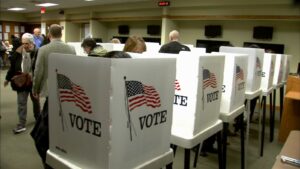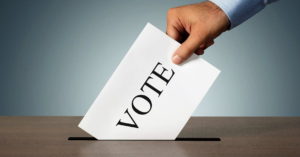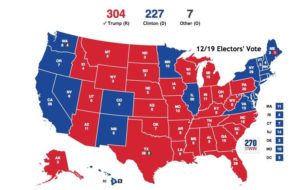By JOHN KANELIS / johnkanelis_92@hotmail.com
Call me a fuddy-duddy if you wish, or old-fashioned, or even a “strict constitutional constructionist.”
I am not going to climb aboard the vessel that seeks to throw out the Electoral College.
You see, I happen to like the way we elect presidents. It’s the method concocted by the nation’s founders. Their intent was to create a more equitable distribution among the states. They intended to give more sparsely populated states a greater voice in selecting the president.
Has it worked perfectly? Well, no. It hasn’t. However, name any government policy that works perfectly and I’ll be willing to consider buying that bridge you’re offering to sell me.
I traveled to Greece in November 2000. You’ll recall how that election was hung up in the courts for weeks after Election Day. The Supreme Court ended up settling it with a 5-4 vote. Al Gore had more actual votes than George W. Bush, but Bush became president.
I had the challenge in 2000 of trying to explain to my Greek friends — most of whom are highly sophisticated government-watchers — how someone can collect more votes than the other guy but lose the election. I sought to explain as best I could the founders’ vision of what the Electoral College was intended to do. I think I made my point then.
Still, the debate rages on, even after Joe Biden defeated Donald Trump in both the actual vote and the Electoral College.
OK, the system ain’t perfect. In 2016, Hillary Clinton collected nearly 3 million more votes than Trump, but she lost. We have the Bush-Gore election of 2000. Grover Cleveland outpolled Benjamin Harrison, but lost the 1888 election. Samuel Tilden lost the presidency in 1876 to Rutherford B. Hayes in the same fashion.
By and large, though, the system works as the founders intended.
Consider that Nevada became a battleground this time around; it was just as critical to Biden winning as, say, Pennsylvania.
I am just not ready to toss the Electoral College system on its ear because of an occasional hiccup.








